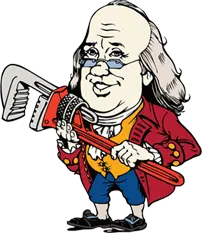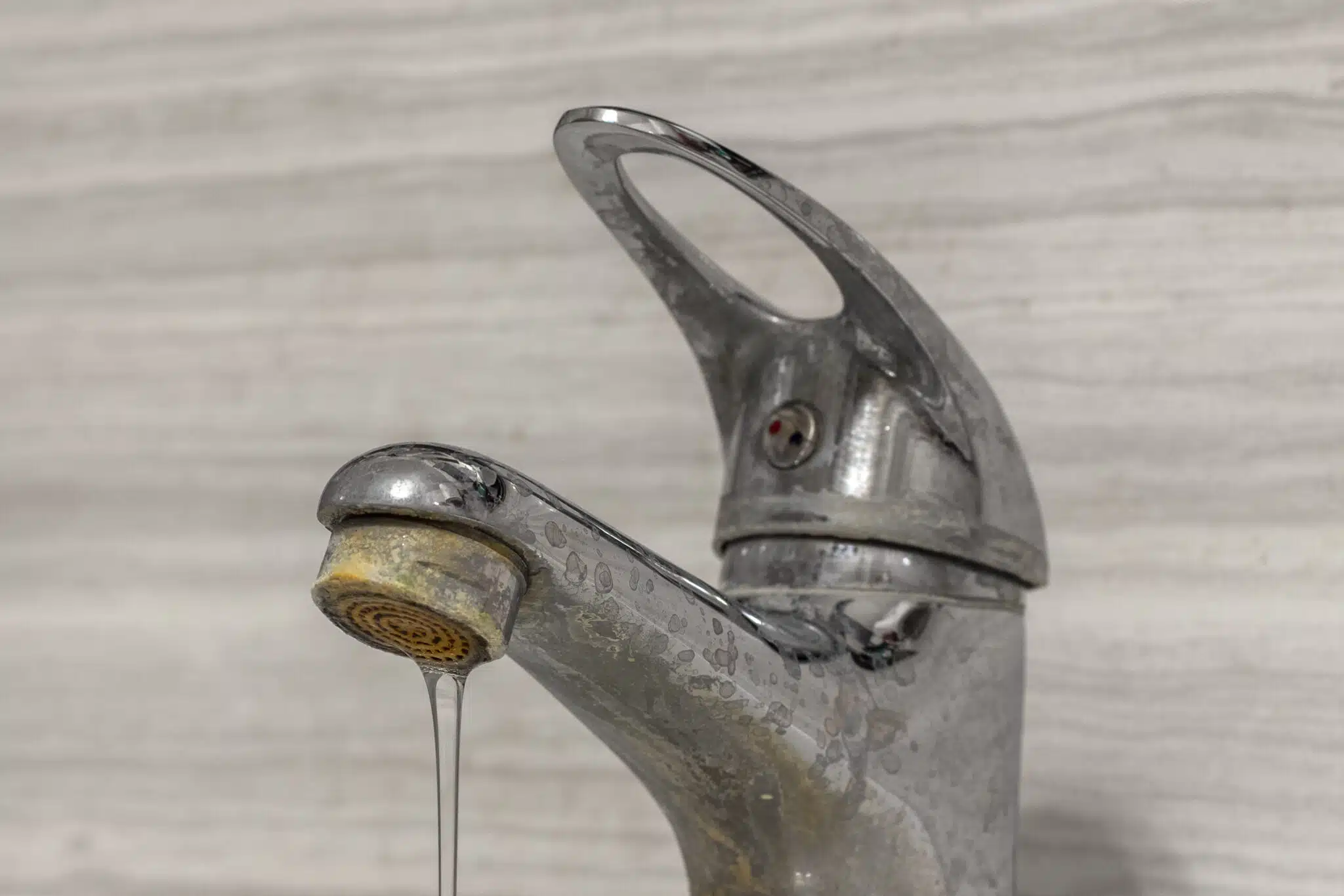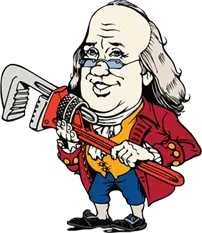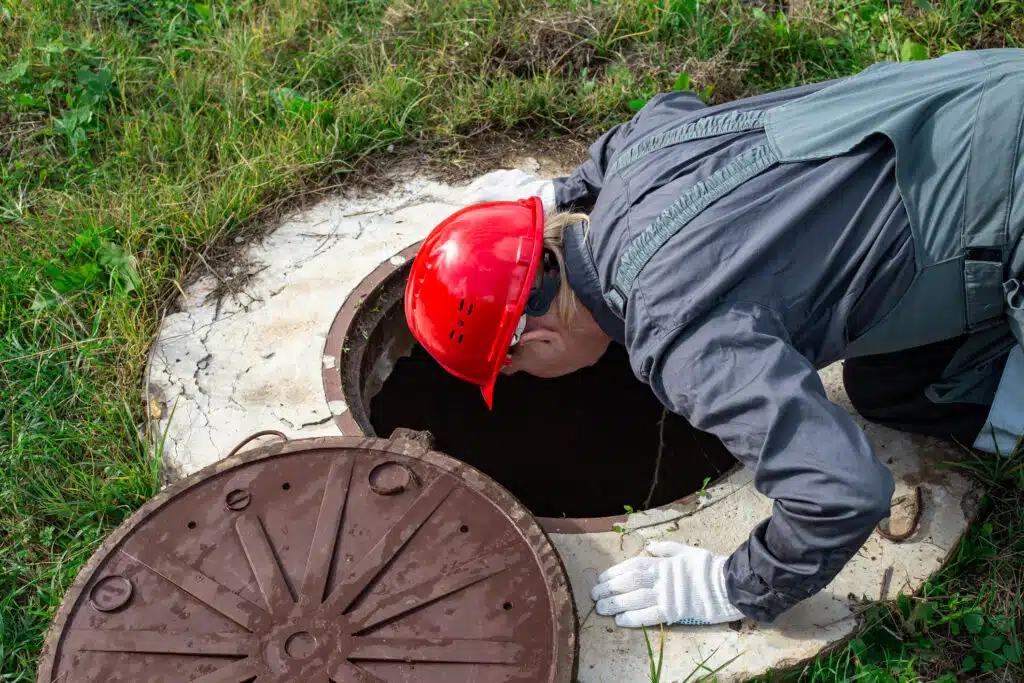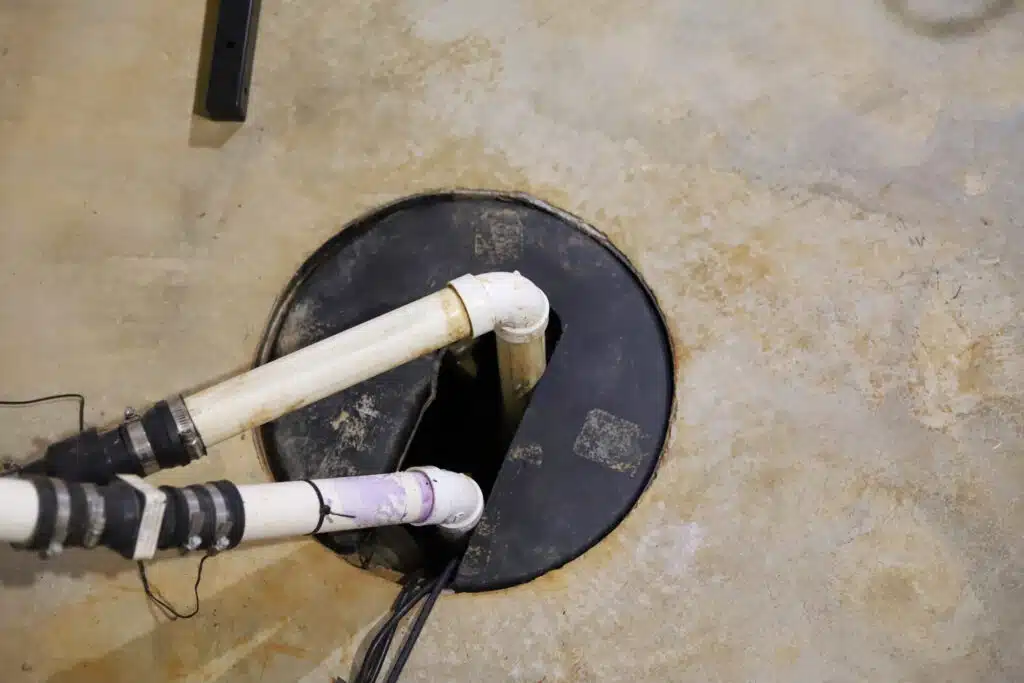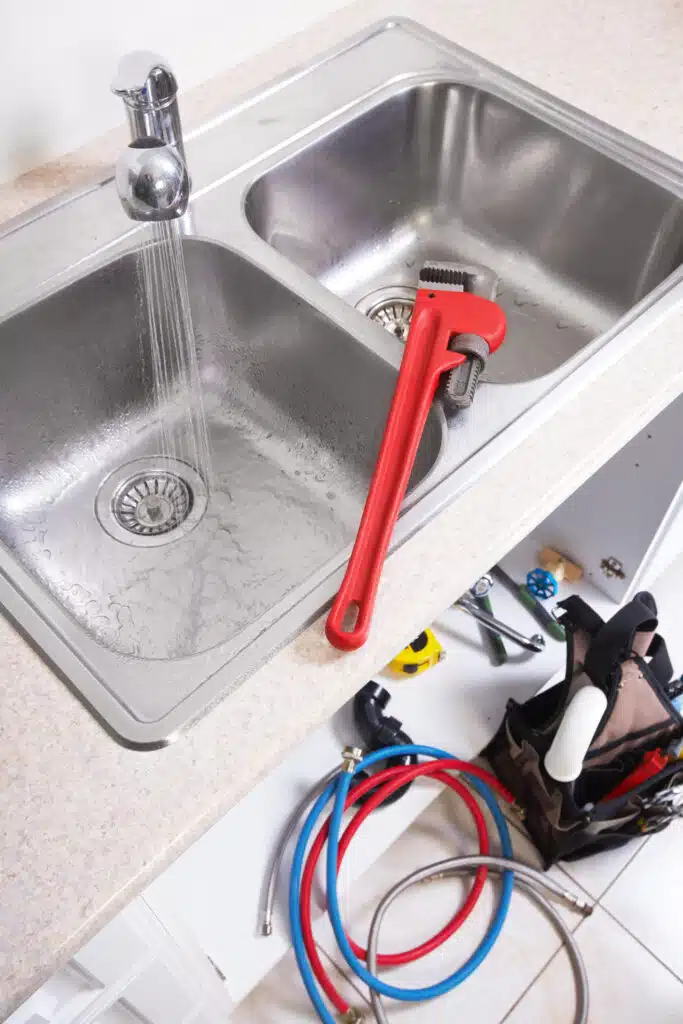Hard water can build up in pipes, make heating less efficient, and raise maintenance costs in winter. It leaves deposits like calcium and magnesium, which get worse in the cold. To fix this, you can use a water softener and insulate your pipes.
Hard Water and How It Affects Your Home
Ever think about how hard water causes trouble in winter?
It’s not just a small problem—it can damage your plumbing and heating systems.
This type of water has lots of minerals like calcium and magnesium.
These form deposits, called scale, that build up in pipes and heating systems.
Over time, this build-up makes things less efficient and leads to potential repairs.
Winter makes it worse.
Hard water forms scale faster as water heats up, especially in the cold months when heaters run more.
This build-up can block water flow, slow down heating, and even clog your pipes completely—a headache no one wants.
If you live in Lancaster, PA, it’s even trickier.
The area’s limestone and chalk-rich soil make water hardness levels vary, meaning many homes face extra problems with scale during winter when systems are working harder.
Understanding the effects of hard water on your home can help you stay ahead of the problem.
Preparing for winter is the best way to protect your plumbing and avoid unnecessary disruptions.
A little planning now can save you a lot later.
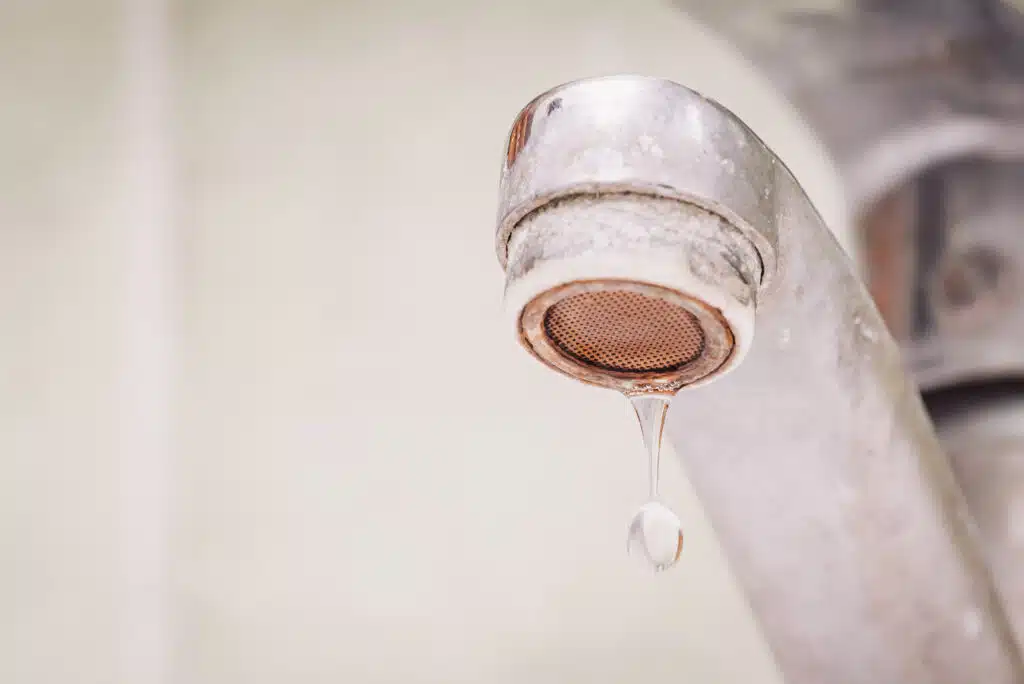
Why Is Your Water “Hard”?
Ever wonder why your water feels tough on your skin or leaves spots?
It’s because of minerals like calcium and magnesium.
These minerals dissolve into the water as it flows through rocks.
In areas like Lancaster, PA, where limestone and chalk are common, the water picks up more of these minerals.
This composition results in what is referred to as hard water.
Water hardness is measured in grains per gallon (GPG) or milligrams per liter (mg/L).
If your water has less than 3.5 GPG, it’s “soft.” Over 10.5 GPG? That’s “very hard.”
A tool called the Langelier Saturation Index (LSI) can also show if your water might form scale (mineral buildup) or cause corrosion.
If the LSI is above +0.5, you’ll likely see more buildup, especially in hot water systems.
This problem becomes more pronounced in winter when we use increased amounts of hot water.
Understanding hard water isn’t just fun trivia.
It’s crucial for maintaining your home’s plumbing health.
Hard water can clog pipes, damage appliances, and harm heating systems.
To tackle these issues and avoid expensive plumbing repairs, contacting Benjamin Franklin Plumbing of Lancaster for expert water quality services is a wise choice.
Their expertise ensures both your plumbing and home remain protected, especially in colder months.
Hard Water Problems in Lancaster, PA
Hard water is a frequent concern for homeowners in Lancaster.
The area’s ground is rich in limestone and chalk, which introduce minerals like calcium and magnesium into the water.
As water travels through these layers, it absorbs these minerals, making water prone to scale buildup.
In winter, the issue intensifies.
Colder temperatures cause heating systems to work harder, accelerating mineral deposits in pipes, water heaters, and appliances.
Over time, this buildup can restrict water flow, reduce heating efficiency, and lead to premature plumbing wear.
What’s unique in Lancaster is the variability in water hardness, often fluctuating dramatically within short distances due to differences in soil composition.
Some residents face only minor inconveniences, while others contend with significant pipe damage and fixture issues.
That’s why consulting local experts like Benjamin Franklin Plumbing of Lancaster is essential—they specialize in managing the area’s hard water challenges, particularly during the demanding winter season.
Problems Caused by Hard Water in Winter
When winter hits in Lancaster, PA, water quality issues go from small annoyances to major problems.
Cold weather makes hard water’s effects, like scaling and clogs, even worse.
Minerals in water, such as calcium and magnesium, form tough deposits called “scale.”
These deposits slowly make your pipes tighter.
When water flow slows down and temperatures drop, it increases the chance of pipes freezing.
Trapped water can freeze, causing pipes to burst—and that means costly repairs.
Your heating systems don’t escape the impact either.
Whether it’s your water heater or boiler, scale buildup lowers their efficiency.
A layer of scale in your water heater works like insulation, making it harder for the system to heat water.
The harder it works, the more energy it uses—a situation nobody wants during the holidays.
Lancaster has it worse thanks to naturally high mineral content caused by the area’s limestone-rich soil.
If you don’t deal with it, hard water can wreak havoc on your home and energy usage, especially in winter.
Protect your home before it’s too late!
How Hard Water Affects Your Home
Hard water might not seem like a big deal, but over time it can cause serious problems in your home—especially in winter.
From your pipes to your appliances, the damage can add up fast.
Your plumbing system often takes the hardest hit.
As mineral-filled water moves through your pipes, it leaves behind calcium and magnesium deposits.
These minerals form a tough “scale” that builds up over time.
This buildup makes pipes narrower, lowering water pressure and raising the chances of clogs.
In winter, the cold can make these blockages worse and put extra stress on your pipes.
Your appliances—like water heaters, dishwashers, and washing machines—aren’t safe either.
Scale buildup makes them work harder, using more energy and wearing out faster.
For residents in Lancaster, PA, these issues are common due to the naturally mineral-rich water caused by limestone and chalk deposits in the area.
Even your fixtures and surfaces face problems.
Mineral residue leaves behind ugly spots on faucets, sinks, and tubs.
Over time, it speeds up damage, leading to higher costs for repairs or replacements.
Fixing these issues early can help protect your home and keep everything running smoothly during the colder months.
If you notice signs of mineral buildup affecting your home, consider reaching out to a professional like Benjamin Franklin Plumbing of Lancaster to address the issue and prevent further damage.
Health Concerns Linked to Hard Water
Hard water isn’t a health threat, but it can be a hassle, especially in winter when dry skin and hair problems get worse.
Minerals like calcium and magnesium often pull moisture from the skin and leave hair dry and rough.
This is a common issue for residents in Lancaster, PA, where cold weather combined with water hardness exacerbates these problems.
Some people also wonder if hard water could cause long-term health issues.
Drinking it isn’t harmful—it even has small amounts of useful minerals.
However, in rare cases, higher mineral levels might cause minor discomfort for sensitive individuals, such as an upset stomach.
These occurrences are uncommon and typically depend on individual health circumstances.
Water hardness can also impact cleanliness at home, potentially affecting health in other ways.
Soap scum on skin or clothes isn’t just annoying—it can hold bacteria or irritants, which may contribute to minor skin discomfort.
To tackle these challenges, consulting experts like Benjamin Franklin Plumbing of Lancaster about installing a water softener system can help protect both your health and your home through Pennsylvania’s chilly winters.
The Impact of Hard Water in Winter
Hard water isn’t just a small problem—it can cause significant issues, especially in winter.
When it gets cold, minerals in hard water—like calcium and magnesium—create tough deposits called scale.
This scale clogs pipes, slows water flow, and strains your plumbing.
Over time, this can lead to more frequent repairs and maintenance for homeowners in areas like Lancaster, PA, where these mineral-rich water issues are particularly common due to the region’s limestone-heavy ground.
Heating systems are particularly vulnerable.
Scale can build up in water heaters, coating heating elements and reducing efficiency.
This forces the heater to work harder to warm water, increasing energy consumption and reducing its lifespan.
Neglected, this issue could eventually result in costly replacements—expenses that can be mitigated through proactive maintenance or preventive measures.
Even appliances like dishwashers and washing machines can suffer.
Mineral deposits reduce their efficiency, resulting in higher energy usage and a shorter lifespan.
By addressing hard water problems early, homeowners can protect their plumbing and appliances, saving money and avoiding unnecessary stress over time.
Managing Hard Water in Your Home
Hard water isn’t just annoying—it can quietly damage your plumbing and appliances, particularly in areas like Lancaster, PA.
A great solution is installing a water softener.
These systems remove calcium and magnesium—the minerals responsible for hard water—and replace them with sodium or potassium.
The result? Softer water is gentler on pipes and helps reduce scale buildup, which can clog your system and lower heating efficiency.
While general maintenance of a water softener is important, some tasks can be more complex than they appear.
For instance, ensuring the brine tank has enough salt, checking for salt bridges (hard layers of salt that can disrupt the process), and properly insulating the system to prevent freezing may require professional assistance to avoid unintentional damage.
To avoid complications, reaching out to a professional plumber is highly recommended.
For those living in Lancaster, PA, where hard water is common due to limestone-rich soil, addressing these challenges with expert help can save you money on plumbing repairs and keep your home systems running efficiently.
Working with experts like Benjamin Franklin Plumbing of Lancaster ensures your water softener is properly installed and maintained, providing reliable, high-quality water year-round.
How to Test for Hard Water at Home
Worried that hard water might be causing problems for your plumbing and appliances?
Testing your water is the first step to solving the issue. Here’s what you should know about determining if your water is hard.
For a quick at-home check, grab a clear container and fill it halfway with tap water.
Add a few drops of liquid dish soap, close the container, and shake it hard.
If your water is soft, you may see lots of bubbly suds.
Hard water will create fewer suds and may leave a cloudy film.
Keep in mind, though, that this method provides only a rough idea and might not be entirely accurate.
For better accuracy, consider a water hardness test kit.
These kits include strips that detect minerals and indicate hardness by changing colors.
While fairly simple to use, the results might not provide the full picture of your water’s mineral content.
For precise results, reach out to the professionals.
Benjamin Franklin Plumbing of Lancaster provides comprehensive water testing to accurately measure hardness levels and recommend tailored solutions for your home in Lancaster, PA.
Don’t leave it to chance—know for sure.
Picking a Water Softener in Lancaster, PA
Choosing a water softener might feel tricky, but it’s the key to solving mineral-heavy water issues in Lancaster, PA.
The water here is full of calcium and magnesium from the local limestone, so you need a system that can handle it.
When comparing options, focus on efficiency and capacity.
Pick a system that can manage high mineral levels and fit your household’s water use.
Many modern models include handy features like automatic regeneration and energy-saving settings—great for long-term use, especially in colder months when water use goes up.
You’ll also want something that’s easy to maintain.
A good system doesn’t just fix hard water—it saves you time and effort.
Look for simple controls and solid warranties to keep things running smoothly.
Why choose local experts?
Because they know Lancaster’s water better than anyone.
Professionals like Benjamin Franklin Plumbing of Lancaster provide customized solutions tailored to the area’s specific water needs.
Skip the guesswork and trust the experienced pros who understand the unique challenges of water conditioning in your home.
Winter Plumbing Tips for Lancaster Homeowners
Winter in Lancaster, PA, can be rough—not just on your heater but also on your plumbing.
Cold weather, combined with hard water, can mean frozen and burst pipes.
Mineral deposits from this water can make it even trickier for water to flow, increasing the risk.
A little planning now can save big plumbing problems later.
Start by insulating your pipes, especially in unheated spots like basements, crawl spaces, or garages. Pipe insulation is an easy and effective way to keep pipes warm, which helps reduce the chances of freezing and blockages from mineral buildup.
Next, take care of outdoor plumbing. Disconnect garden hoses and turn off outdoor taps. Make sure to drain leftover water to avoid freezing and expansion that could damage pipes leading indoors.
Also, consider scheduling a professional plumbing checkup. An expert can identify mineral buildup or other blockages, particularly as freezing temperatures can make these issues worse. Catching small problems early ensures they don’t turn into costly repairs later.
Lastly, keep your home warm, even if you’re away. Set your thermostat to at least 55°F to help prevent frozen pipes and keep water flowing smoothly.
Benjamin Franklin Plumbing of Lancaster is here to help you prepare your home for winter!
Give us a call to schedule your winter plumbing maintenance today.
Why Choose Benjamin Franklin Plumbing of Lancaster
If you’re dealing with hard water in Lancaster, PA, you need plumbers who understand the local water challenges.
At Benjamin Franklin Plumbing of Lancaster, we specialize in solving issues related to mineral-rich water and help keep your home protected during the winter months.
We know Lancaster’s water problems stem from the area’s geology, like limestone and chalk deposits.
With this knowledge, we offer solutions such as installing and maintaining water softeners to reduce pipe scaling and improve the efficiency of your heating systems.
Whether it’s addressing blockages or ensuring your appliances run smoothly, we’re here to provide tailored solutions for your home.
As a trusted local provider, we focus on punctuality, professionalism, and high-quality service.
When you choose Benjamin Franklin Plumbing, you’re choosing a team that cares about keeping your home running smoothly in all seasons.
Don’t let hard water cause expensive damage to your home.
Reach out today to schedule an appointment with Lancaster’s trusted plumbers.

FAQs
What is hard water, and why should I worry about it in Lancaster, PA?
Hard water contains high levels of minerals like calcium and magnesium. In Lancaster, PA, the limestone-rich ground contributes to the water’s hardness. This can impact your plumbing, reduce heating efficiency, and lead to long-term issues if not treated.
How does hard water affect my plumbing and heating?
Over time, hard water can cause mineral deposits to build up in pipes and water heaters. This buildup may restrict water flow, lower plumbing performance, and force heating systems to work harder, which can raise energy costs.
How can I tell if my home has hard water?
Common signs of hard water include white residue on dishes, soap scum in sinks, dry skin, and reduced water pressure from clogged pipes. Consider contacting a professional, like Benjamin Franklin Plumbing of Lancaster, to test your water and confirm if hard water is present.
What are the benefits of a water softener?
A water softener eliminates minerals, prevents scale buildup, and improves the efficiency of heating systems. It also protects appliances, extends their lifespan, and provides softer-feeling water for everyday use.
Why choose Benjamin Franklin Plumbing of Lancaster for hard water problems?
We specialize in addressing Lancaster’s hard water challenges with expert water testing and dependable water softener installations designed to meet your needs.




